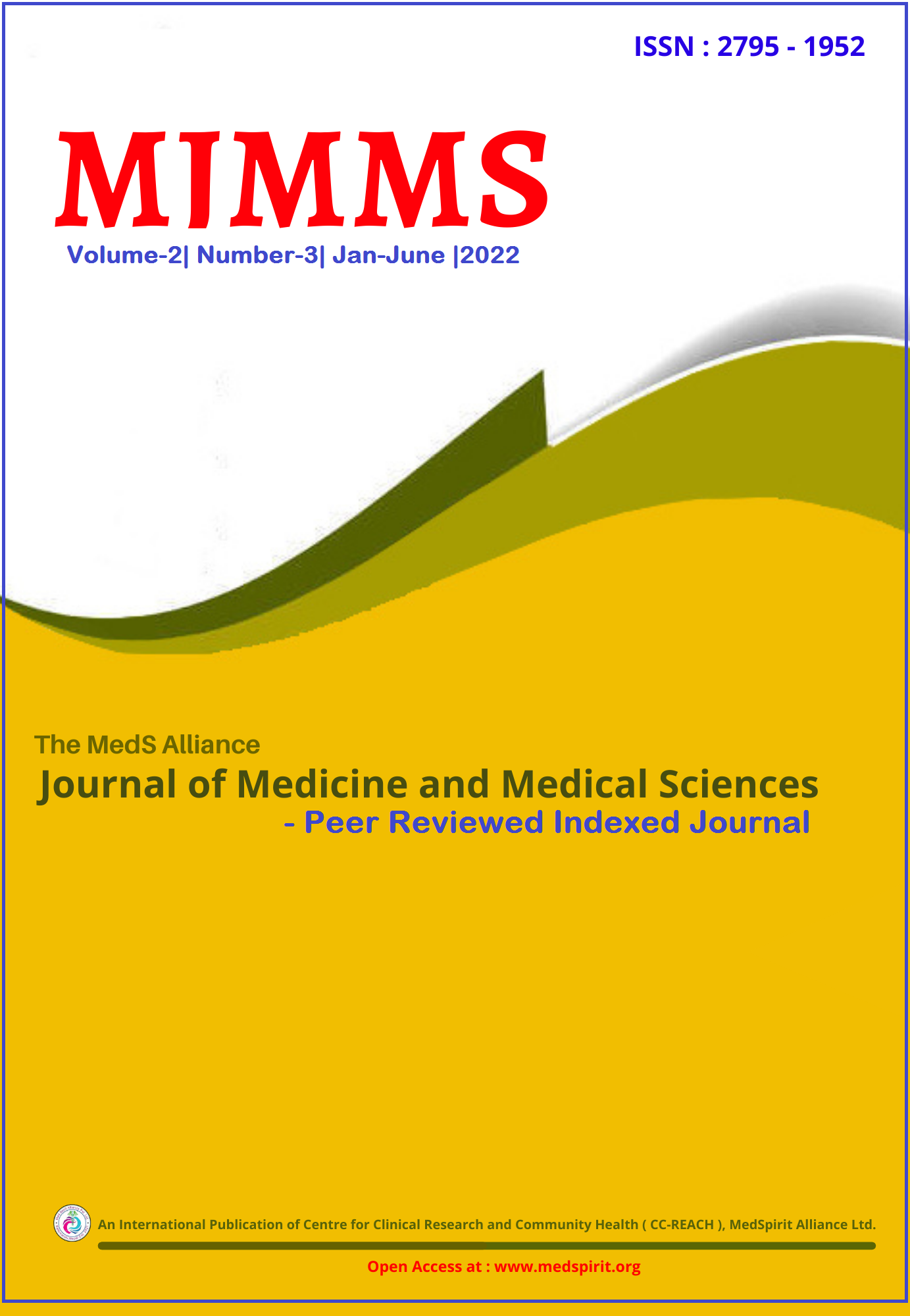Health Related Quality of Life among Reproductive Age Women Having Polycystic Ovarian Syndrome
DOI:
https://doi.org/10.3126/mjmms.v2i3.47753Keywords:
Health related quality of life, Polycystic ovarian syndrome, Reproductive age womenAbstract
INTRODUCTION: Polycystic ovarian syndrome (PCOS) is a common endocrine disorder commonly seen in young reproductive age women and is manifested by polycystic appearing ovaries on ultrasonography along with oligomenorrhoea or amenorrhoea, hirsutism, obesity and emotional disturbances further leading to infertility and metabolic disturbances as well as chronic illness. These symptoms, however, are frequently linked to decline woman's self-esteem and self-image, and may have an impact on her health-related quality of life (HRQoL).
MATERIALS AND METHODS: Descriptive, web based-cross sectional study was conducted among 686 reproductive age women of Facebook page named PCOS WARRIOR Nepali woman selected conveniently. Structured and standardized health related quality of life questionnaire (German PCOS Questionnaire -g) was used to collect data by posting google form on Facebook page. Obtained data were analysed in Statistical Package for Social Science (SPSS) version 20, descriptive statistics and inferential statistics.
RESULTS: More than half (50.9%) of the respondents were found to have good quality of life. The most common health related concern was for Infertility (28.57%) and least was for Acne (71.43%). There was statistically significance between Health-related quality of life and Body Mass Index (BMI) (p=<0.001), menstruation Pattern (p=0.013), duration of medication (p=0.002) and presence of co-morbidities (p=0.010) respectively.
CONCLUSIONS: It is concluded that more than half of the respondents have good quality of life. Various programmes should be conducted regarding infertility and assisted reproductive technologies giving special attention to the women having PCOS. Management of PCOS should be directed to improve quality of life of PCOS patients.
Downloads
Downloads
Published
How to Cite
Issue
Section
License

This work is licensed under a Creative Commons Attribution-NonCommercial 4.0 International License.




